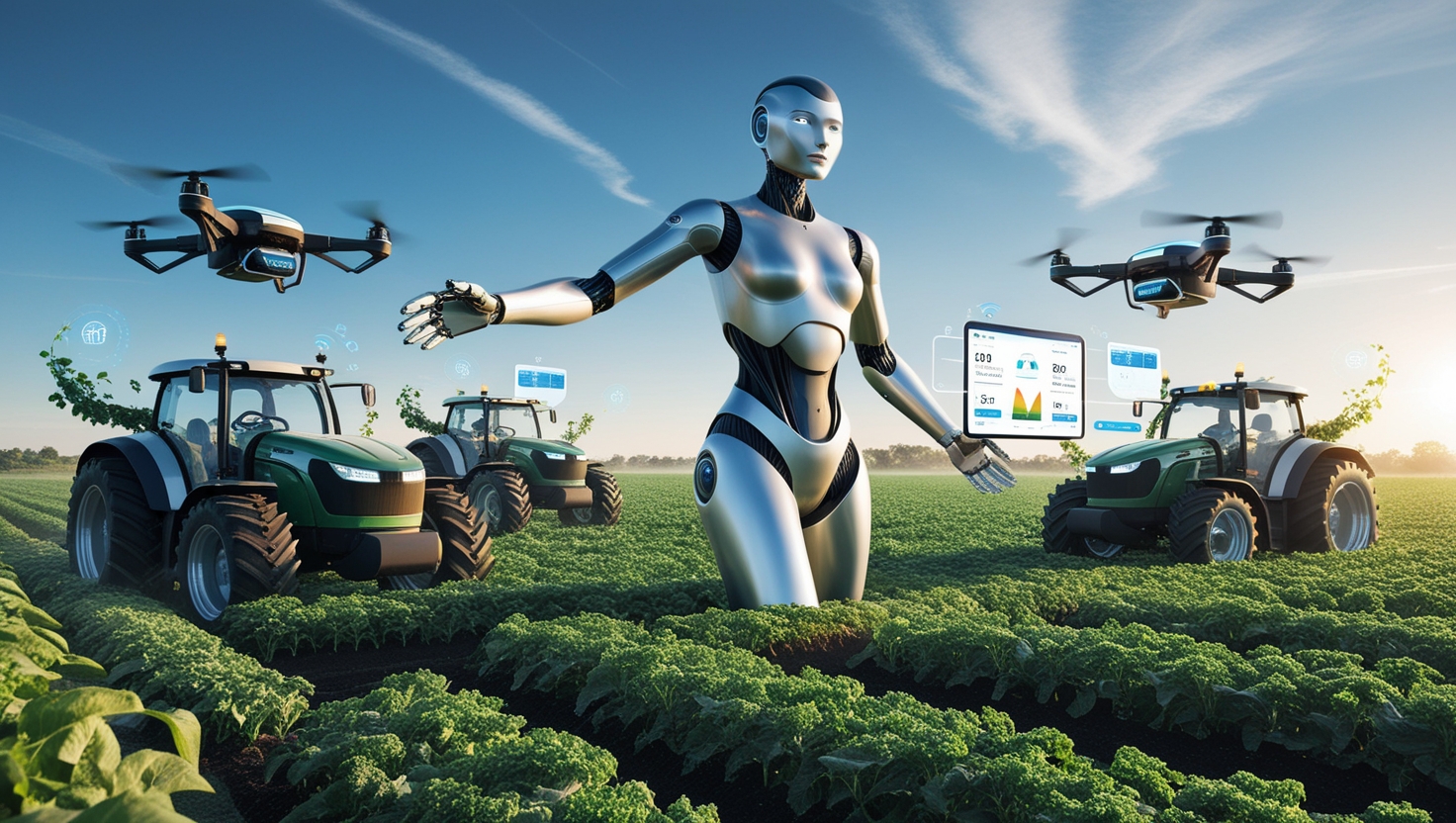AI on Agriculture: Will AI Do the Farming? A Groundbreaking Discovery in the Agricultural Sector
October 11, 2024—In recent years, artificial intelligence (AI) has transformed many industries. Now, it is poised to revolutionize agriculture. A private organization has made a major breakthrough in AI technology for farming, sparking discussions about the future of the agricultural industry. Could AI soon take over traditional farming methods? This discovery may just be the answer to some of the most pressing challenges faced by farmers today.
The New AI Technology
The private organization behind this groundbreaking discovery has not yet revealed its name, but the details they shared have already caught the attention of experts worldwide. They developed an AI system capable of handling various agricultural tasks with minimal human intervention. These tasks include planting, monitoring crop health, managing irrigation, and even harvesting.
AI on Agriculture
Using advanced sensors, drones, and robots, the system monitors the entire farm and makes real-time decisions. For example, it can identify areas that need water or nutrients, detect diseases, and even predict weather conditions. Most importantly, the AI can adapt to changing conditions without requiring constant updates or adjustments from humans.
How AI Will Help Farmers
One of the biggest challenges farmers face is unpredictability. Weather patterns, soil conditions, and pest outbreaks can cause massive losses. Traditional methods require constant monitoring and quick decision-making, which is not always possible on large farms. However, AI can eliminate much of the guesswork.
This new AI
technology can monitor a farm 24/7. It analyzes data from weather reports, soil sensors, and cameras to make the best decisions. Moreover, it can apply fertilizers or pesticides in just the right amounts, reducing waste and saving costs. It also helps conserve water, which is especially important in regions facing droughts.
Additionally, labor shortages in farming have been a growing problem. Many rural areas struggle to find workers to help with planting, weeding, and harvesting. AI could fill this gap by using robots for these tasks. This would help reduce labor costs while ensuring that crops are cared for promptly.
Impact on the Future of Farming AI on Agriculture
If this technology becomes widely available, it could lead to significant changes in the agricultural sector. For instance, small-scale farmers who struggle to compete with large industrial farms might benefit from AI systems. These systems could increase their efficiency and profitability, allowing them to compete on a larger scale.
AI on Agriculture
On the other hand, large farms could become even more efficient, producing higher yields with less effort. Some experts even predict that fully autonomous farms, where human involvement is minimal, could become a reality within the next decade.
However, while the benefits seem promising, there are also concerns. Some people worry that AI could lead to job losses, particularly in rural areas that depend heavily on farming. Others are concerned about the high cost of implementing such systems, which could be too expensive for small-scale farmers. Despite these concerns, many experts believe that AI in agriculture will ultimately be beneficial.
Will AI Replace Farmers?
The question on many people’s minds is: will AI replace human farmers? While it is true that AI can handle many farming tasks, experts believe that human involvement will still be necessary. Farmers will likely shift from performing manual labor to overseeing AI systems. This could involve making strategic decisions, managing finances, or monitoring the AI’s performance.
AI is also not perfect. There will be situations where human judgment is needed, such as handling unexpected events or making decisions that AI may not be programmed to handle. For example, while AI can predict weather conditions, farmers may still need to make judgment calls based on local knowledge or experience.
Furthermore, farming is not just about efficiency. It is deeply rooted in culture and tradition. Many farmers take pride in their work, and AI cannot replace that personal connection to the land. Therefore, it is unlikely that AI will completely take over farming, but it will certainly change the way farming is done.
